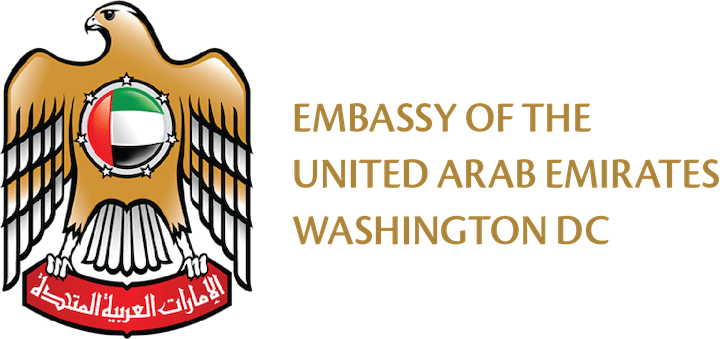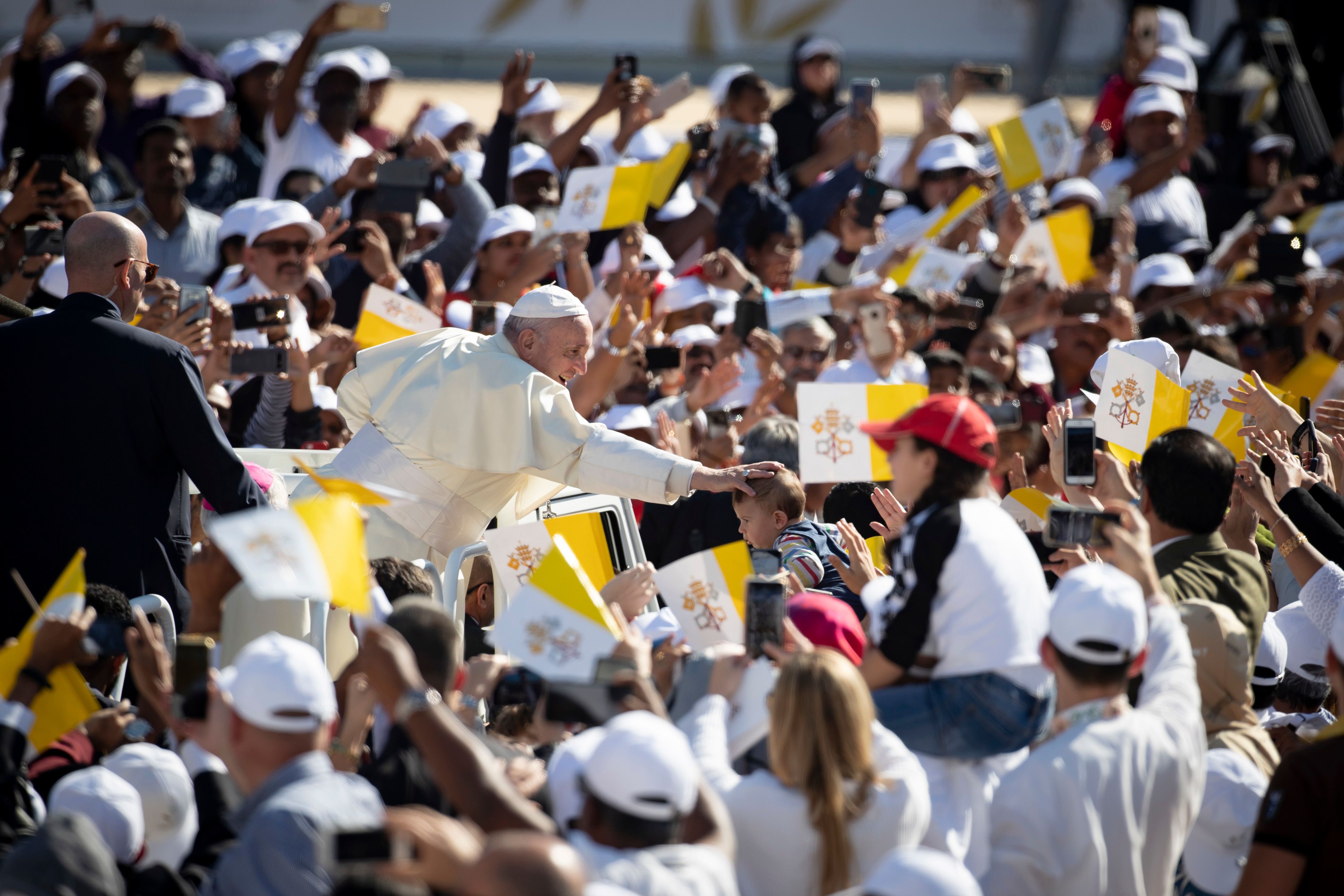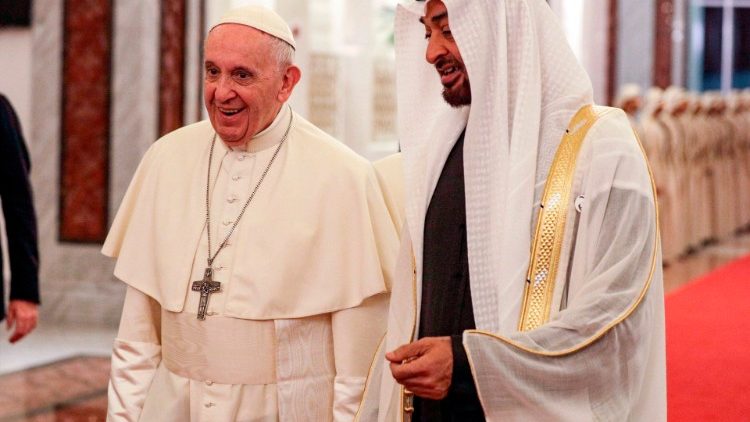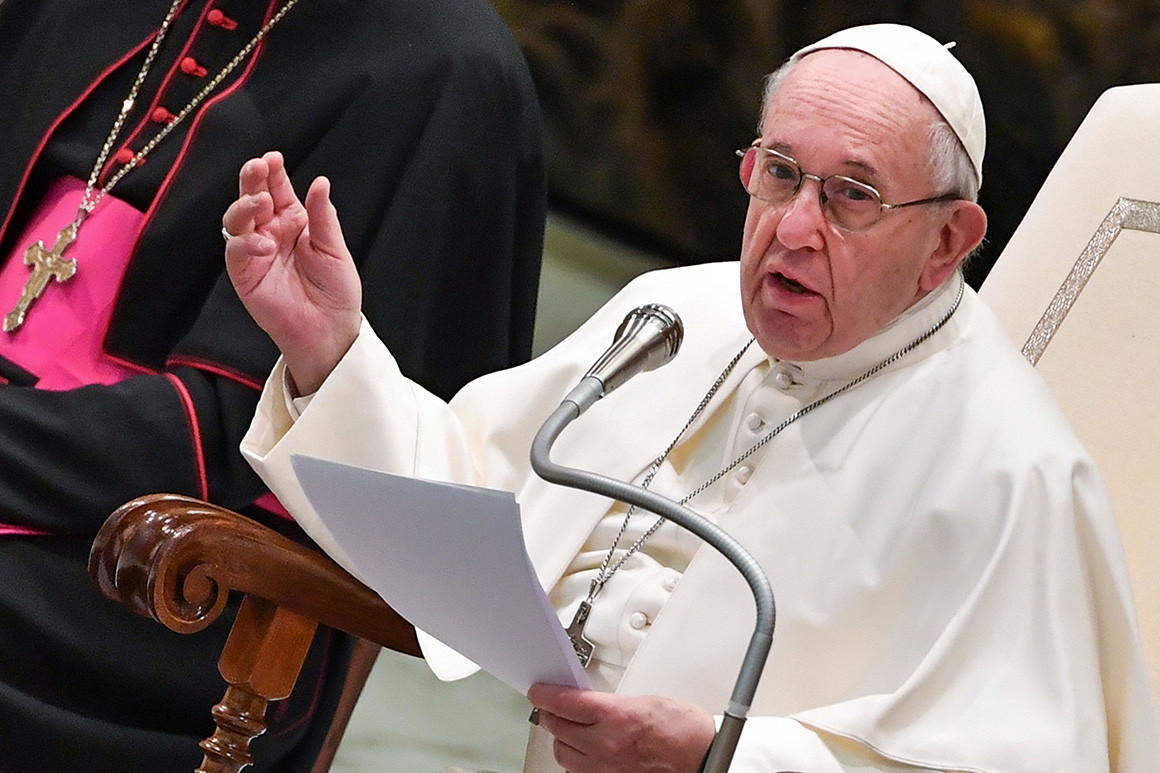The UAE's Progressive Vision
The UAE has a forward-looking vision for the Middle East region — a path that promotes moderate Islam, empowers women, teaches inclusion, encourages innovation and welcomes global engagement. This outlook has been ingrained in the UAE's DNA since its founding in 1971, and the country’s leadership underscores the importance of living these values every day and passing them on to the next generation.
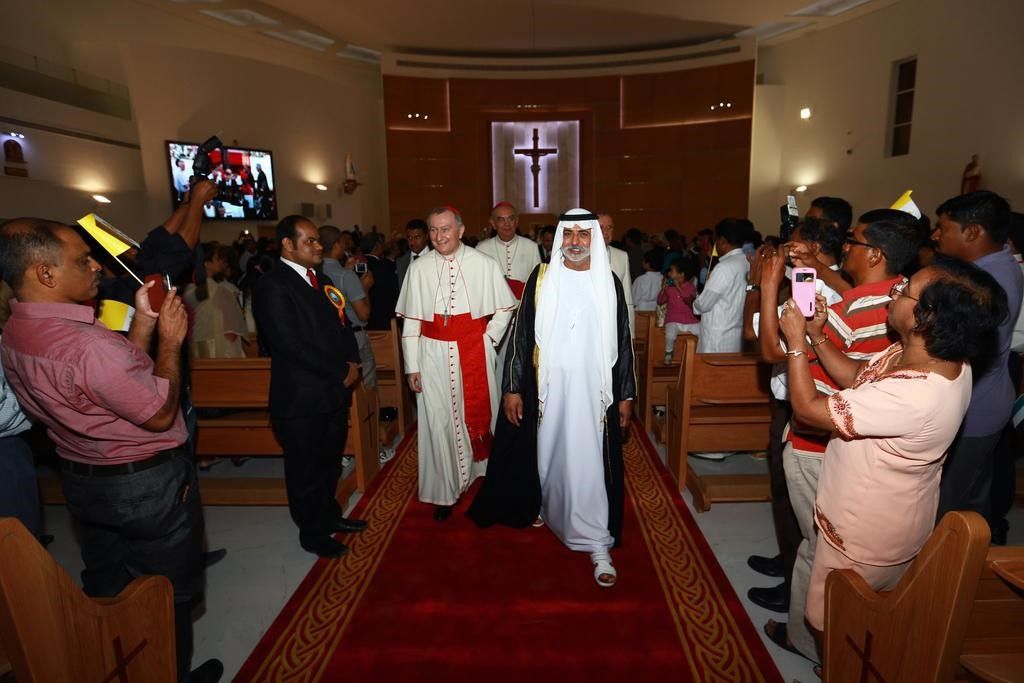
Today, people of more than 200 nationalities reside in the UAE, living together, side by side. This diversity is reflected in the approximately 40 churches, two Hindu temples, a Sikh temple and a Buddhist temple, which welcome multi-national congregations. In April 2020, the Church of Jesus Christ of Latter-day Saints announced plans to build a temple in the UAE, its first in the Middle East.
The UAE encourages values of inclusion and understanding through government policies, interfaith dialogue and international partnerships. Numerous UAE-US collaborations and exchanges underscore shared principles of inclusion and mutual respect.
A Tradition of Inclusion
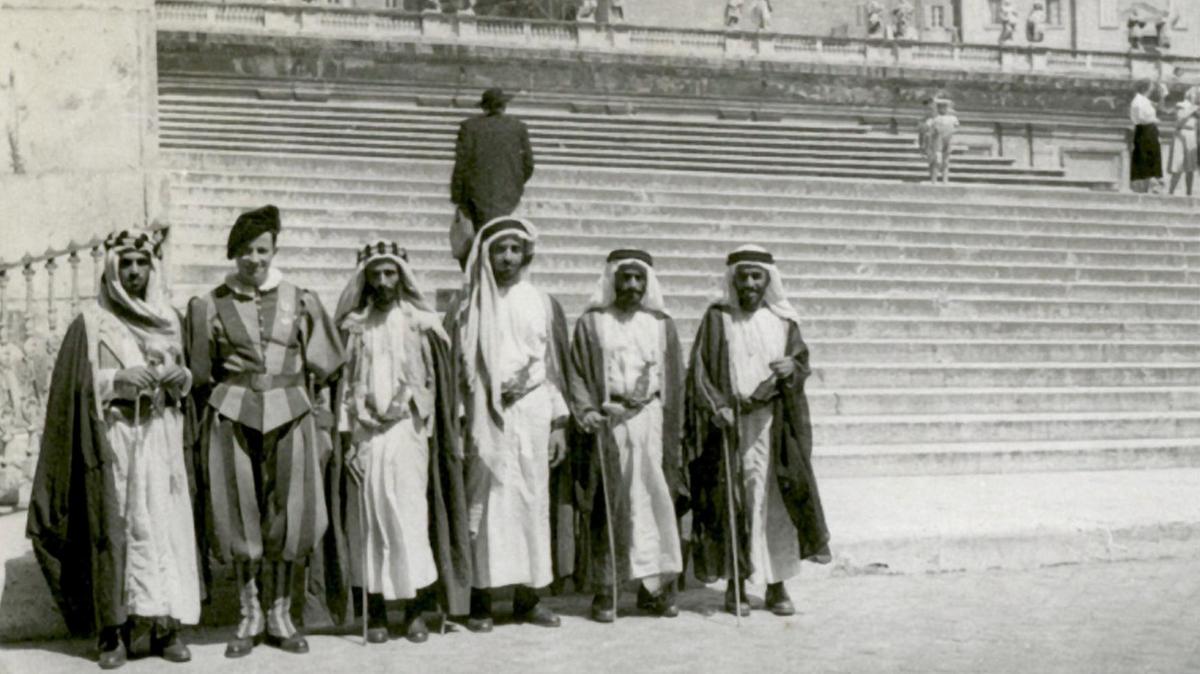
Values of inclusion, mutual respect and religious freedom have been ingrained in the UAE’s DNA since before the country’s founding in 1971.
In 1951, a delegation of Emirati leaders including HH Sheikh Zayed bin Sultan Al Nahyan, future Founder and First President of the UAE, traveled to Europe. During the trip, the group learned about European culture and religion, and visited the Vatican and prominent churches like Notre Dame Cathedral in Paris.
In the late 1950s, Sheikh Shakhbut, then the Ruler of Abu Dhabi, began welcoming the first communities of Christian oil and gas workers to the Arabian Gulf region. As a welcoming gesture, the government donated land for the St. Andrew’s Anglican Church, which opened in 1968.
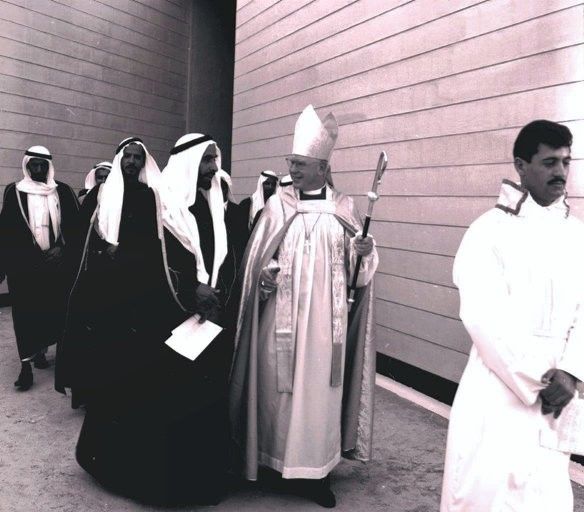
Other denominations thrived, too and the UAE quickly became a model for religious inclusion in the region, with the Vatican moving the See of Southern Arabia from Aden to Abu Dhabi in the 1970s. Since unification, the UAE government has consistently demonstrated its commitment to inclusion, implementing laws that protect religious freedom and programs that foster interfaith understanding. The temporary Constitution adopted in 1971 explicitly guaranteed freedom of religion to worshipers of all faiths. This guarantee was reaffirmed in 1996 when the Federal Supreme Council permanently adopted the Constitution.

In 2016, the UAE unveiled a National Tolerance Program and established a Ministry of Tolerance, now led by HE Sheikh Nahyan bin Mubarak Al Nahyan. The Ministry implements programs that foster respect, inclusion and mutual understanding among people in the UAE. The UAE celebrated 2019 as the “Year of Tolerance.” In 2018, the Ministry launched the inaugural National Festival of Tolerance, a weeklong program to raise awareness about social inclusion.
The UAE is also working with partners around the world to advance religious inclusion. The country first established diplomatic relations with the Vatican in 2007. And in 2016, HH Sheikh Mohamed bin Zayed Al Nahyan, Crown Prince of Abu Dhabi, met His Holiness Pope Francis at the Vatican to discuss shared values of inclusion and understanding. This helped lay the groundwork for the Pope’s historic 2019 visit to the UAE.
Diversity in the UAE
The UAE government is committed to supporting inclusion and openness within its borders and across the region. Protecting religious freedom is a central component of these efforts, which is why the UAE Constitution guarantees freedom of worship to all people. Today, Muslims and non-Muslims, Emiratis and non-Emiratis alike, live together peacefully in the UAE.
Islam
Over 75 percent of UAE residents are Muslim. The UAE believes in the true nature of Islam as a religion of peace and compassion. In that spirit, the UAE is committed to encouraging values of compassion and cooperation through interfaith dialogue and international partnerships.
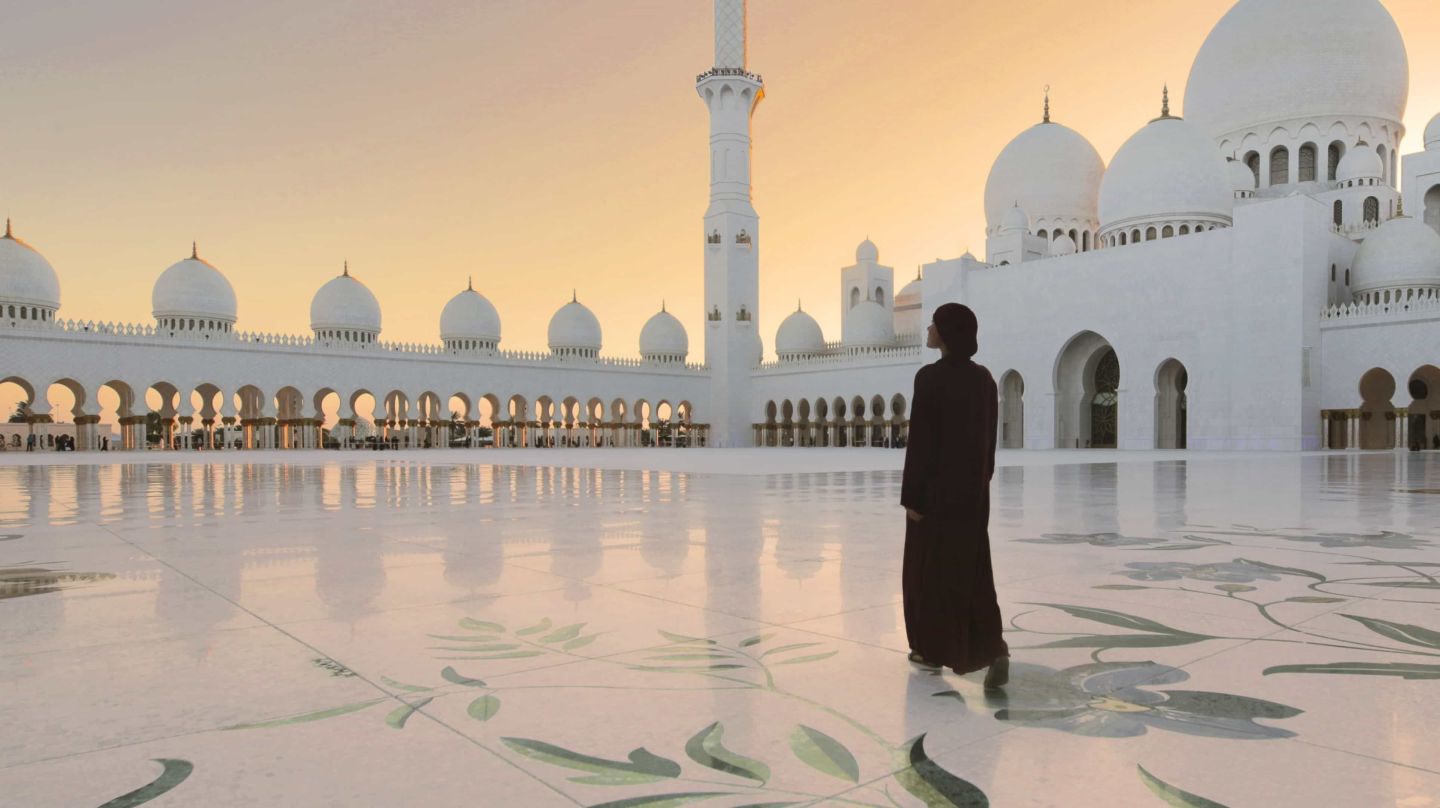
For the last five years, Forum for Promoting Peace in Muslim Societies has held an annual conference in Abu Dhabi. More than 500 experts, religious leaders and scholars from 80 countries attended the 2019 Forum to discuss ways to further Islamic values like friendship, peace and inclusion. Meanwhile, the Abu Dhabi-based Muslim Council of Elders seeks to encourage peace and inclusion in Muslim communities worldwide.
In addition, the UAE’s commitment to helping those in need is rooted in the values of Islam. Sheikh Zayed bin Sultan Al Nahyan, Founder and first President of the UAE, drew on the compassionate teachings of Islam to shape his vision for a generous, open-minded nation.
“To treat every person no matter what his creed or race as a special soul is a mark of Islam,” Sheikh Zayed once said. The UAE continues to follow Sheikh Zayed’s example, and the nation has become a model for moderation, inclusion and generosity in the Middle East.
Christianity
Communities of foreign Christians began arriving in the UAE in the late 1950s. The rulers of the emirates welcomed the newcomers, participating in interfaith activities and donating land for the construction of churches. In 1960, the first Roman Catholic mass was held in Abu Dhabi, followed by the opening of the St. Joseph’s Church on the Abu Dhabi Corniche in 1965. Almost 60 years later, nearly one million Catholics live and worship freely in the UAE, with congregations of worshippers from around the world. Reverend Canon Andy Thompson, Chaplain of St Andrew's Church in Abu Dhabi, describes the UAE as “a model for religious tolerance in the region.”
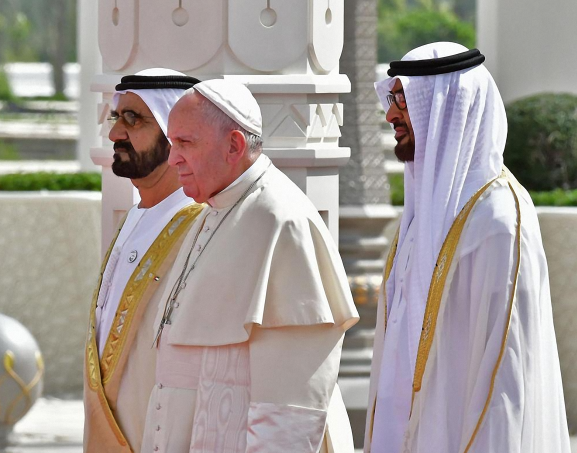
Since the UAE’s unification in 1971, the country has continued to welcome Christians from around the world. About 12.6 percent of the UAE’s population practices Christianity, and the UAE is now home to approximately 40 churches and roughly 700 ministries. In addition, the region’s largest Anglican Church is being built in Abu Dhabi and will accommodate more than 4,000 worshipers once complete. And in 2017, Sheikh Mohamed renamed a mosque in Abu Dhabi to “Mary, Mother of Jesus” to build stronger understanding between Christians and Muslims. All of the churches stand on land donated by the ruling families of each emirate.
“The religious freedom we enjoy here is fantastic,” says Father Ani Xavier, Parish Priest of St. Paul’s Church in Mussaffah. “Everyone is respected. We are given land and the Rulers are excellent.”
In 2019, the UAE partnered with the UN’s heritage agency, UNESCO to become the first country in the world to restore Christian churches in Iraq destroyed by ISIS.
Although the UAE is a relatively young nation, Christianity in the Arabian Gulf region spans back centuries. In 1992, archaeologists on Sir Bani Yas Island in Abu Dhabi discovered a Christian monastery they believe was built around 600 CE. The UAE preserves the monastery today as a reminder of the Emirati people’s inclusive cultural heritage.
Judaism
In the UAE, Jews and people of all faiths can worship freely. Following the signing of the historic Abraham Accords in September 2020, Dubai’s Jewish community has continued to grow and welcomed Dr. Elie Abadie as the UAE’s senior rabbi in residence. In 2019, NYU Chaplain Rabbi Yehuda Sarna was named the first chief rabbi of the Jewish Community of the Emirates.
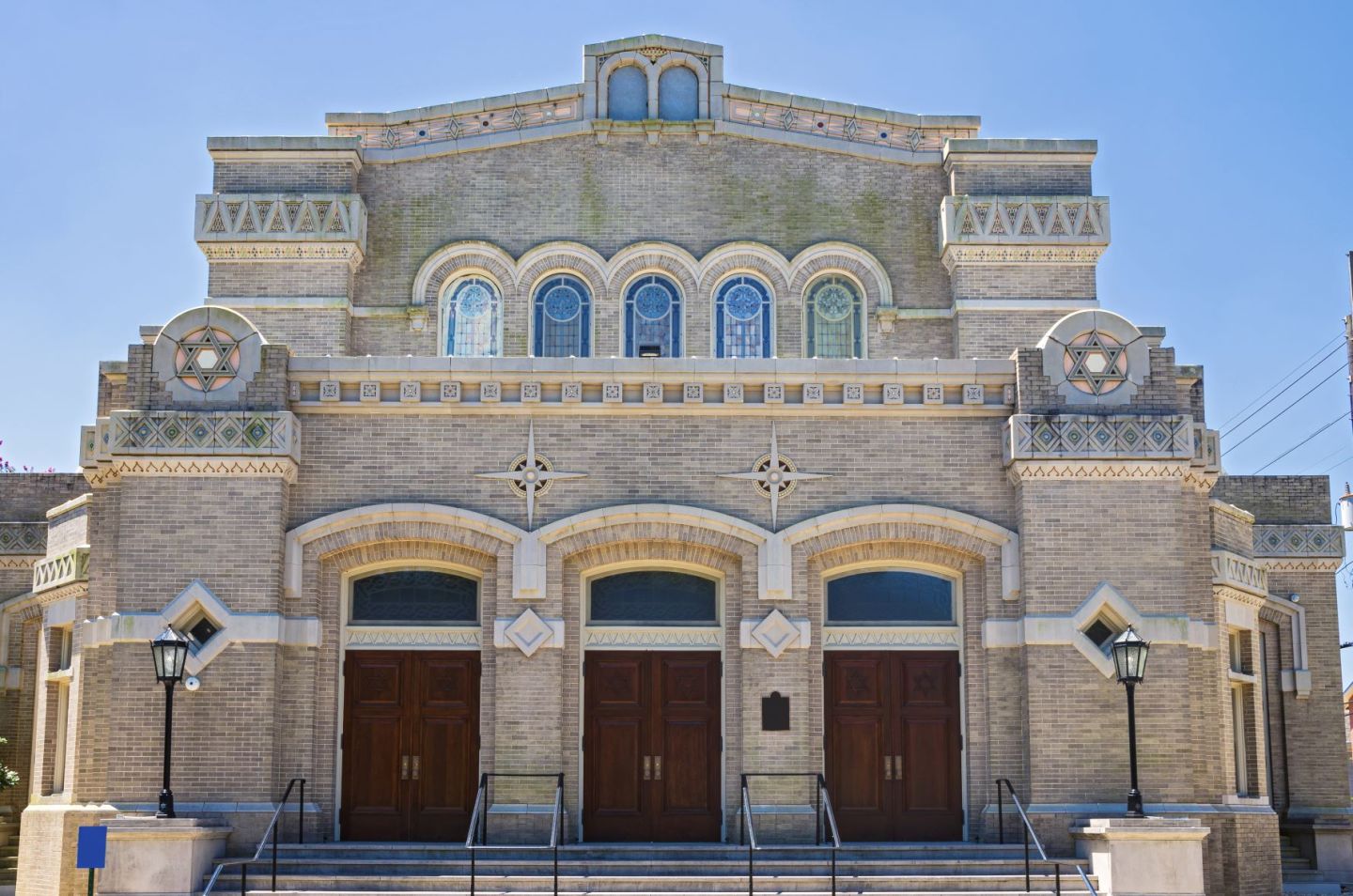
Hinduism
Hindus have lived in the UAE for decades, with the first Hindu temple in Dubai built as early as 1958. Roughly 6.6 percent of the UAE population practices Hinduism. Two Hindu temples now operate in Dubai, and several cremation facilities in Abu Dhabi, Dubai and Sharjah provide Hindu burial rites.
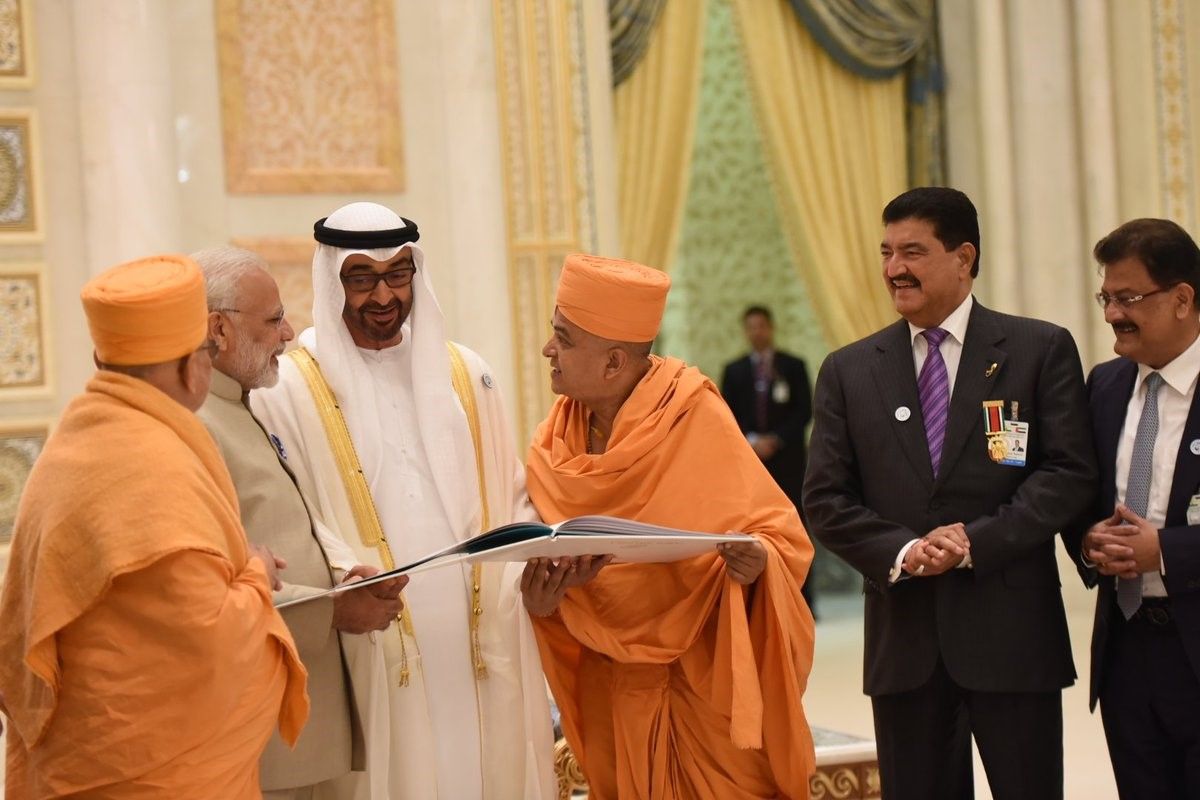
Indian Prime Minister Narendra Modi has visited the UAE twice, strengthening the bilateral relationship between India and the UAE. During his first visit in 2015, Sheikh Mohamed bin Zayed Al Nahyan, Crown Prince of Abu Dhabi, announced a land donation for Abu Dhabi’s first Hindu temple, the BAPS Shri Swaminarayan Mandir.
In 2018, Modi watched as Indian sadhus performed a stone laying ceremony to kick off the construction of the temple. When the structure is completed, it will be the first traditional Hindu stone temple in the Middle East. “It will be a holy place where humanity and harmony will unite,” said Modi.
Sikhism
About 1,000 Sikhs lived in the Emirates in 1958, many of them worshiping at Dubai’s Hindu temple. Over 60 years later, Sikhs are one of the most prominent expatriate communities in the UAE, with more than 50,000 now living in the country.
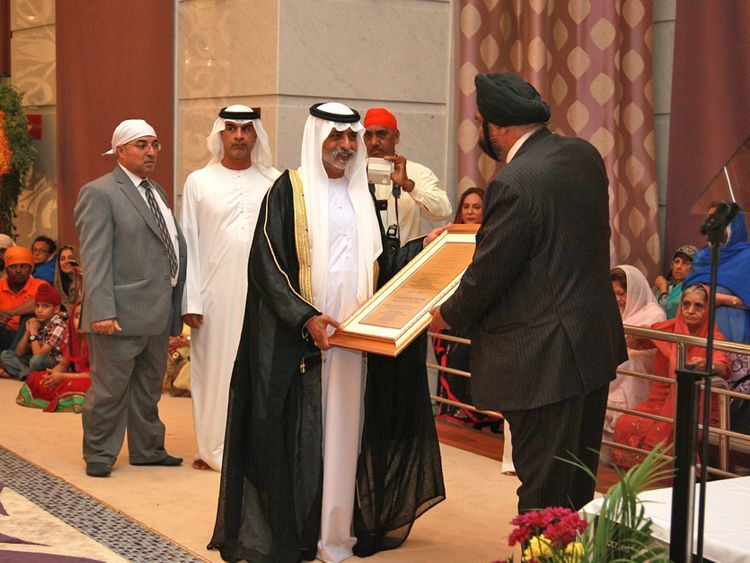
The UAE’s first Sikh temple opened in Dubai in 2012, after Mohammed bin Rashid Al Maktoum, Ruler of Dubai and Vice President of the UAE, granted land for its construction. The 100,000 square-foot facility, known as Guru Nanak Darbar, is the largest gurdwara in the Gulf region. The temple offers an array of religious, non-religious and interfaith services, and it attracts hundreds of thousands of visitors from around the world each year.
The Sikh community holds an interfaith iftar each year at Guru Nanak Darbar. People of all backgrounds, including foreign diplomats and UAE ministers, attend the annual event.
“In a world that struggles with extremism, the best way to cut it is through creating friendships among different faiths and nationalities,” explained Surender Singh Kandhari, chairman of the temple. “It is only through communication that we can overcome adversities.”
Buddhism
Roughly 500,000 Buddhists live in the UAE, most of them expatriates from Sri Lanka. Buddhists from around the UAE travel to the Mahamevnawa Buddhist Monastery in Dubai to practice their faith. The facility is the first Buddhist temple on the Arabian Peninsula.
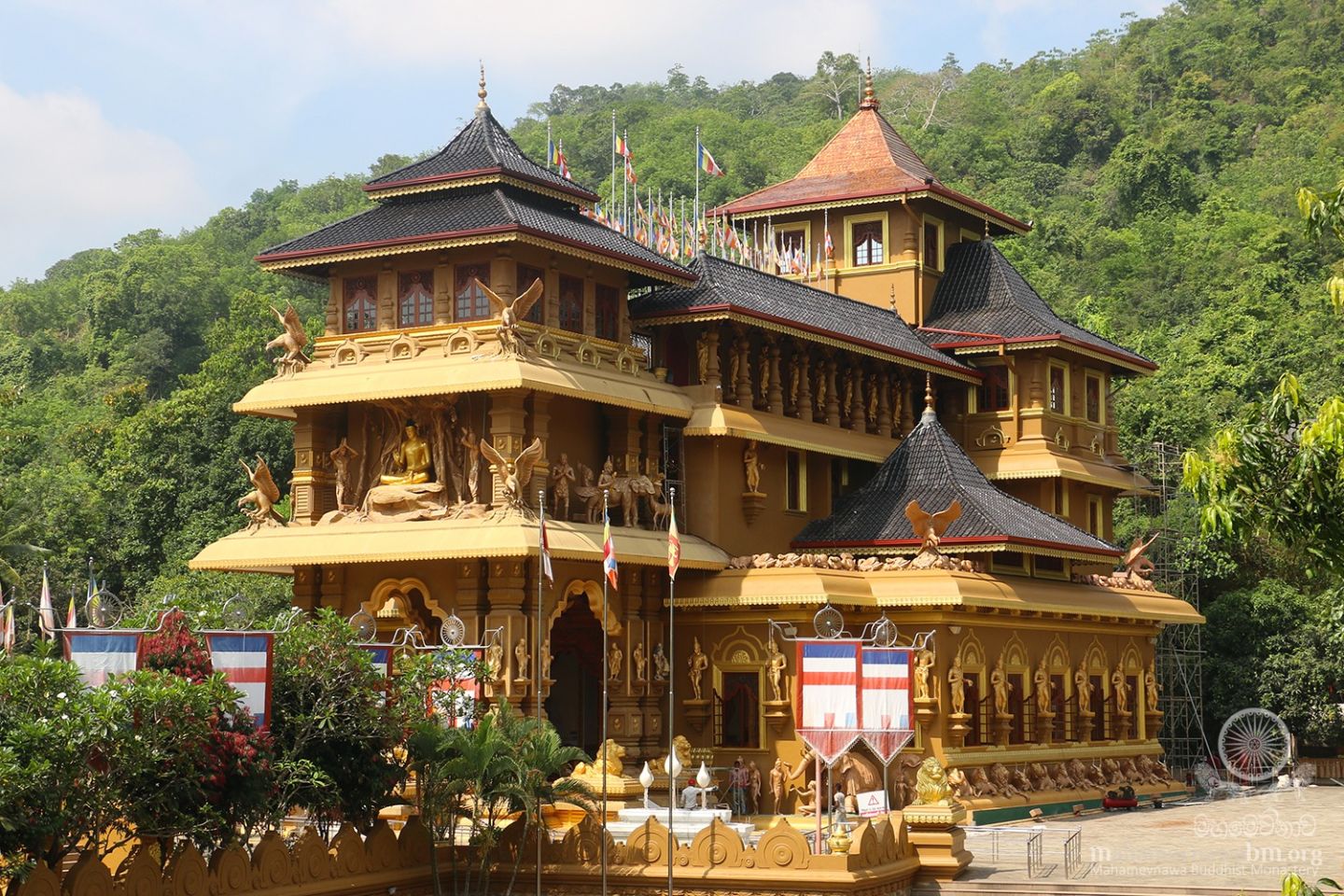
The UAE’s Buddhist community has taken small steps to raise awareness of the faith, having participated in interfaith events such as iftars. Buddhist leaders are also working with the Government of Dubai in the hopes of building a larger temple.
Other Religions
As one of the most diverse societies in the world, the UAE is home to several other religious groups. These communities include Parsis, Baha’is, Druze and more.
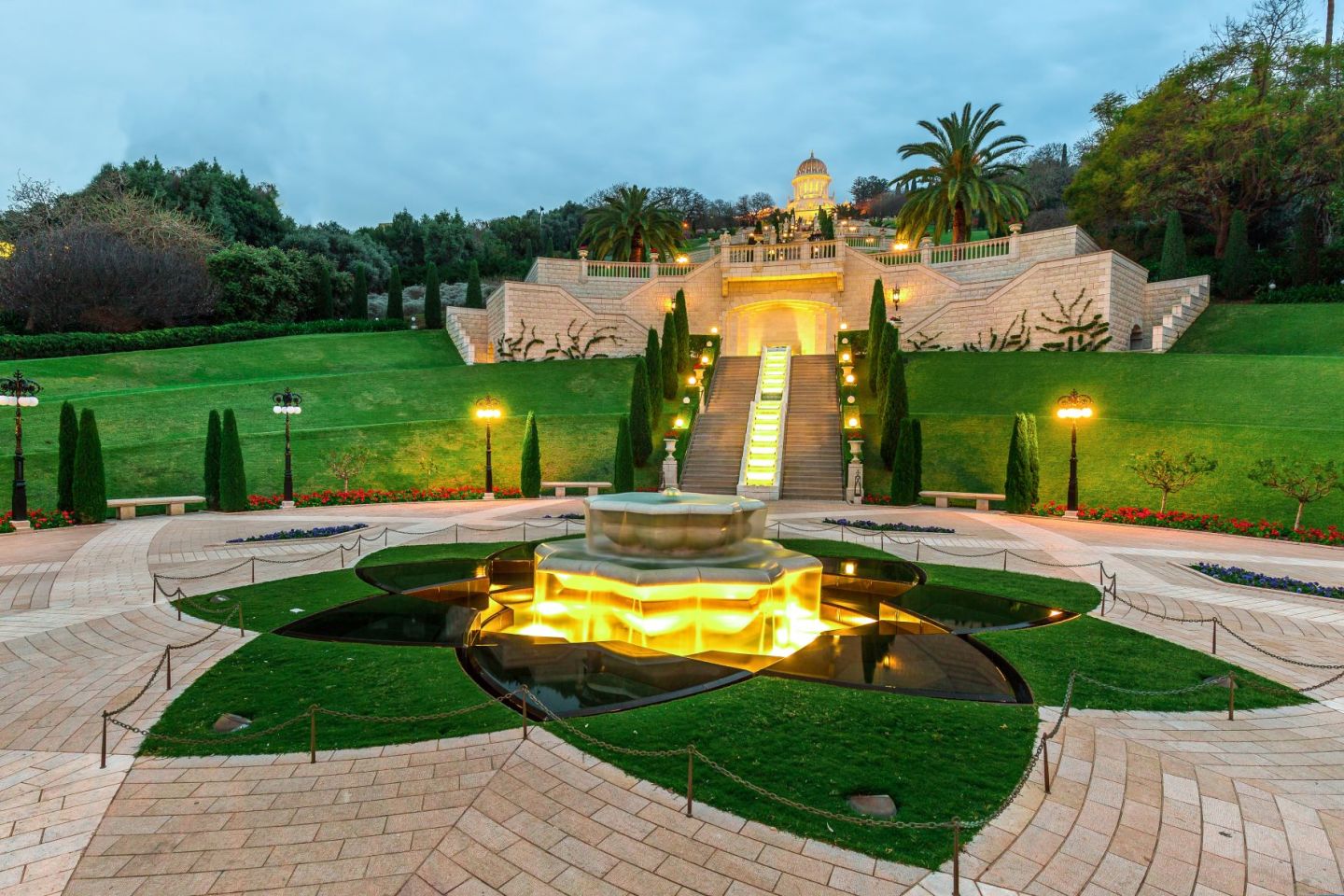
Abrahamic Family House
Including a church, mosque and synagogue, the Abrahamic Family House in Abu Dhabi is a place of learning, dialogue and worship, focused on creating mutual understanding among people of all faiths and belief systems.
The vision for the interfaith center emerged following the visit of His Holiness Pope Francis to the UAE in February 2019, when the Pope joined with Dr. Ahmed el-Tayeb, the Grand Imam of Al-Azhar, to sign the Document on Human Fraternity for World Peace and Living Together.
A reflection of the values highlighted in the Document, the Abrahamic House serves as a powerful platform for inspiring and nurturing understanding and acceptance between people of goodwill.
Rabbi Bruce Lustig, a member of the Higher Committee of Human Fraternity – an international body that provides counsel on the Abrahamic Family House – said the project “will help build bridges between religious leaders and communities as well as foster peace and harmony in an era that is too often defined by difference.”
The complex is located on Saadiyat Island in Abu Dhabi. The three main buildings each lead to a central garden for collaboration and informal gatherings. The site also includes a museum and center for education. The mosque, church and synagogue are the same height, but the design and interior of each religious structure is significantly different.
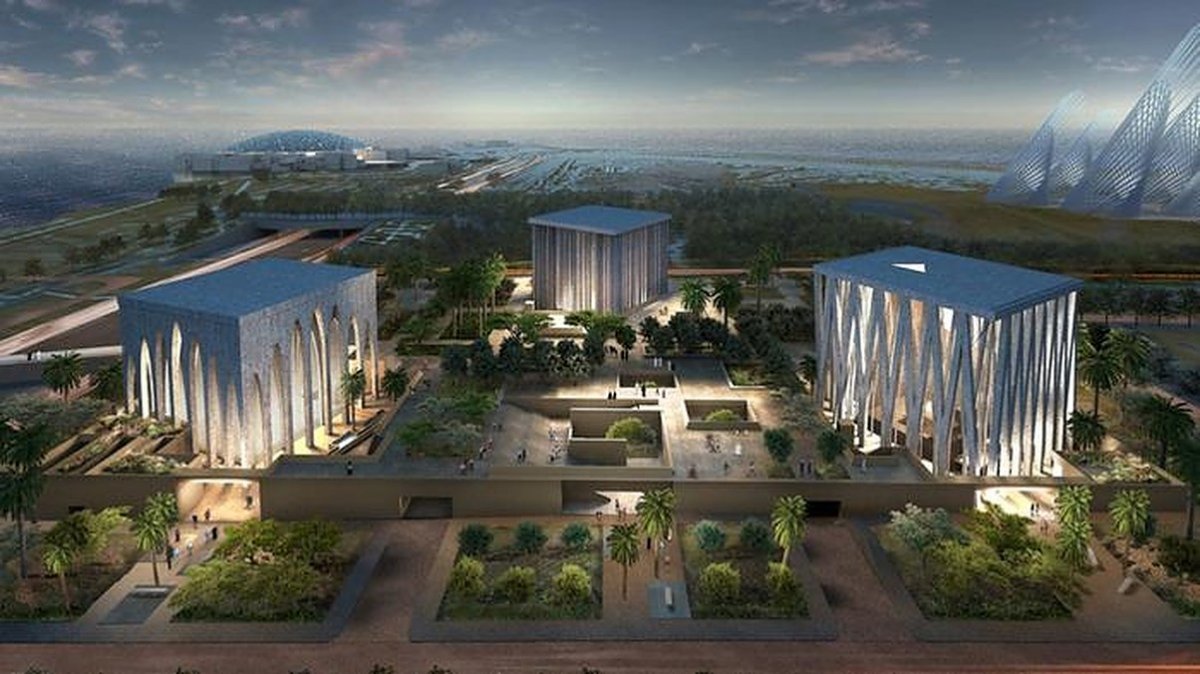
Welcoming Pope Francis
In February 2019, His Holiness Pope Francis made a historic visit to the UAE. It was the first ever visit by a sitting pope to the Arabian Peninsula – the birthplace of Islam. This momentous occasion reflected the UAE’s openness and commitment to inclusivity and freedom of worship.
Highlights from the trip included:
- Reception with HH Sheikh Mohamed bin Zayed Al Nahyan, Crown Prince of Abu Dhabi, and HH Sheikh Mohammed bin Rashid Al Maktoum, Vice President and Prime Minister of the UAE, and Ruler of Dubai.
- Meeting with the Muslim Council of Elders at Sheikh Zayed Grand Mosque.
- Signing of the Human Fraternity Document with Dr. Ahmed el-Tayeb, the Grand Imam of Al-Azhar and Chairman of the Muslim Council of Elders. The Document calls for interfaith harmony and understanding. Following Pope Francis’ visit, UAE Minister of Foreign Affairs and International Cooperation HH Sheikh Abdullah bin Zayed Al Nahyan announced that the Document will become part of the curriculum in schools and universities.
- Mass in front of 180,000 people in Abu Dhabi at Zayed Sports City in Abu Dhabi. The Pope paid tribute to the nearly one million Catholics living in the UAE and shared a message of peace.
On the occasion of Pope Francis’ visit, the UAE announced plans to create the Abrahamic Family House in Abu Dhabi to celebrate peaceful coexistence among different faiths.
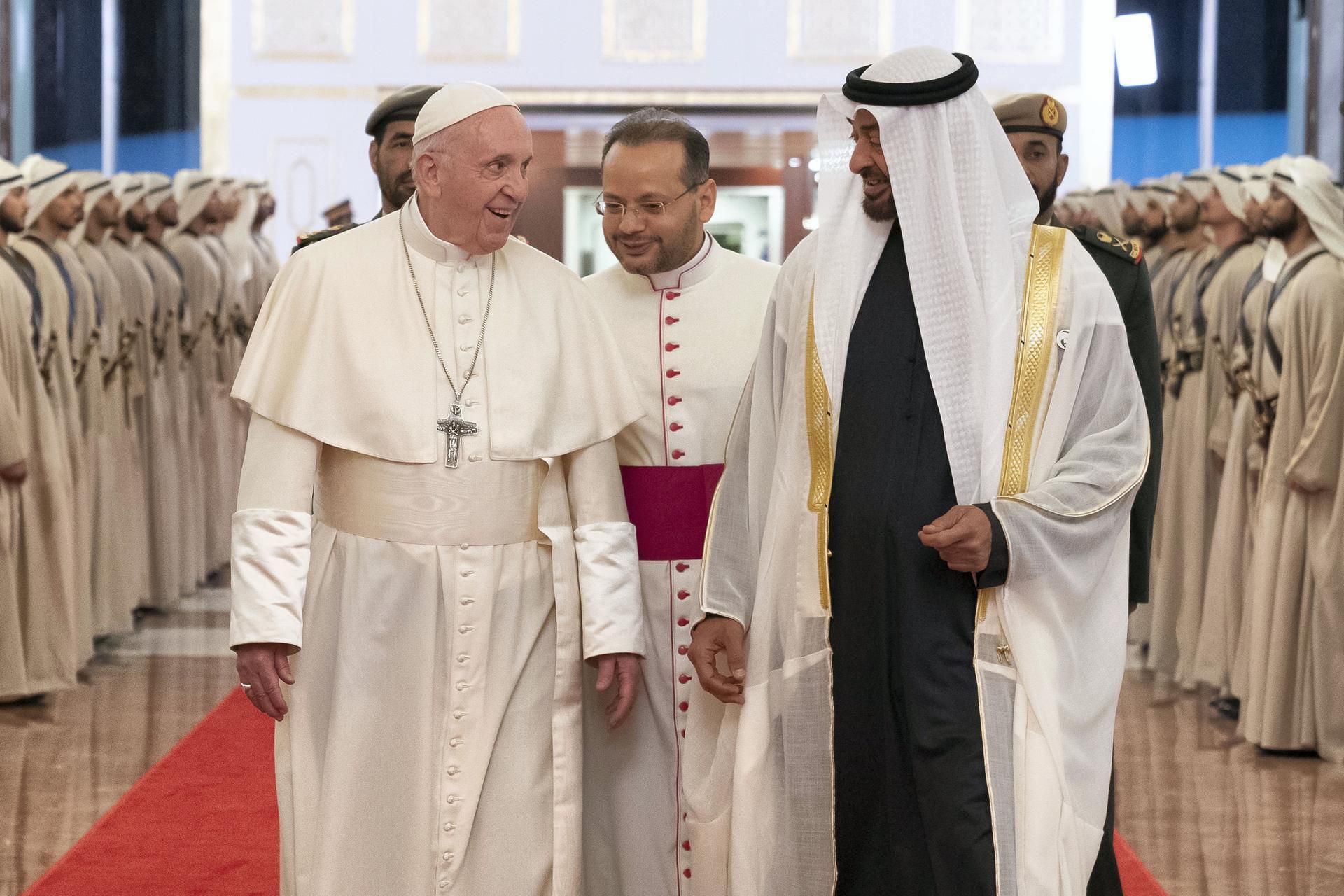
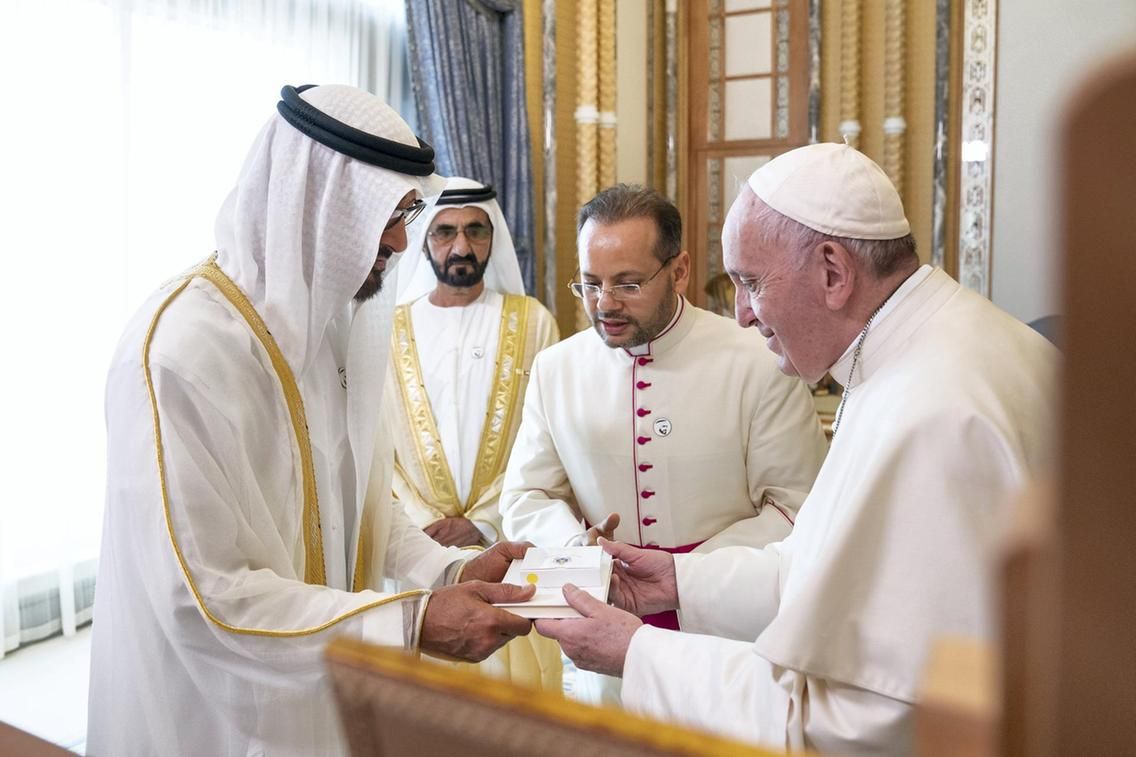
The visit came about after HH Sheikh Abdullah bin Zayed Al Nahyan, Minister of Foreign Affairs and International Cooperation, delivered an in-person invitation to Pope Francis on behalf of the UAE in June 2018. Sheikh Mohamed, meanwhile, visited the Vatican in 2016, meeting with Pope Francis to discuss ways to solve pressing global challenges and enhance interfaith cooperation.
To mark the first-ever visit to the Arabian Peninsula by a sitting Pontiff, UAE Ambassador to the US Yousef Al Otaiba wrote that, “The pope’s visit [sends] a strong signal across the region and world: People with different beliefs can live, work and worship together.”
Paul Hinder, Catholic Bishop to Southern Arabia, has called His Holiness Pope Francis’ historic February 2019 visit to the UAE “a step forward in the relationship between the Catholic Church and the Muslim world.”
